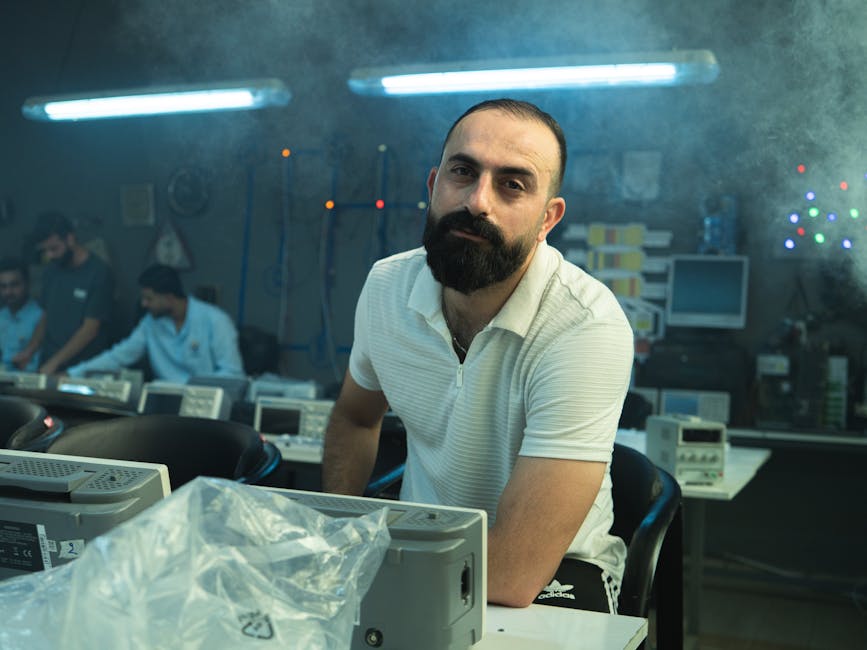No products in the cart.
Mastering Technical Interviews: A Self-Study Guide
Navigating technical interviews can be daunting. Discover self-study strategies and resources to help you succeed without formal coaching.
San Francisco, USA — The tech industry is evolving at breakneck speed, and the competition for jobs is fiercer than ever. With coding bootcamps and interview coaching services cropping up like wildflowers, one must ask: is formal coaching the only path to success? The answer is a resounding no.
Many aspiring tech professionals are discovering the power of self-study, forging their paths through the labyrinth of technical interviews. This approach not only fosters independence but also builds a deep-rooted understanding of essential concepts. Here’s how you can prepare for those daunting technical interviews without breaking the bank on coaching.

First, let’s dive into the foundational topics. A comprehensive understanding of data structures and algorithms is non-negotiable. Platforms like LeetCode, HackerRank, and CodeSignal offer a plethora of problems that simulate real interview scenarios. It’s akin to training for a marathon; the more you practice, the more prepared you’ll be when race day arrives.
 Business Innovation
Business InnovationGreen‑Space Proximity as a Structural Lever for Career Advancement
Green-space proximity functions as a structural lever that boosts cognitive performance, lowers absenteeism, and reshapes corporate and municipal strategies, making…
But preparation doesn’t just stop at problem-solving. Mock interviews are an invaluable tool that helps you simulate the pressure of an actual interview. Websites like Pramp and Interviewing.io connect you with peers for practice sessions. Imagine performing on a stage, the spotlight hot on your face, but instead of an audience, it’s a fellow coder who understands the stakes. This peer-to-peer practice can illuminate areas needing improvement and bolster your confidence.
This peer-to-peer practice can illuminate areas needing improvement and bolster your confidence.
Moreover, maintaining a problem log is a game-changer. Documenting your solutions, mistakes, and the thought process behind your decisions can lead to profound insights. This log serves as a personalized cheat sheet, allowing you to revisit challenging topics and track your progress over time. It’s like having a map in a vast forest; it keeps you oriented and focused on your goals.
Stress management is another critical component of interview preparation. The pressure can be overwhelming, especially when you’re sitting across from a panel of interviewers, each armed with their own expectations. Techniques such as mindfulness meditation, deep breathing exercises, or even light physical activities can help ease the anxiety. Just as a well-tuned instrument produces beautiful music, a calm mind can lead to clearer thinking and better performance.

As we explore these strategies, it’s essential to recognize that the landscape of interviews is shifting. Many companies are embracing a more holistic approach, valuing soft skills, teamwork, and problem-solving abilities alongside technical prowess. This trend is especially prominent in startups, where collaboration is key to success. Therefore, it’s not just about coding; it’s also about communicating your thought process effectively.
 Job Search Strategies
Job Search StrategiesFife Council Prioritises Regional Skill Development Through Careers Week
Fife Council's strategic engagement with Scottish Careers Week underscores its commitment to regional workforce development. The initiative fosters skill enhancement,…
Read More →Consider the story of Jessica, a software engineer who navigated her way through the interview process without formal coaching. She dedicated herself to a self-study regimen, leveraging online resources and forming a study group with friends. The camaraderie and shared commitment transformed her learning experience. When the interview day arrived, she felt not only prepared but empowered. Jessica’s story is a testament to the fact that with determination and the right resources, you can create your own success story.
As we look ahead, it’s clear that the future of job interviews will continue to evolve. Companies are increasingly adopting innovative methods to assess candidates, such as virtual reality simulations and AI-driven assessments. This shift means that aspiring tech professionals must stay adaptable and open to new learning methods.
Many companies are embracing a more holistic approach, valuing soft skills, teamwork, and problem-solving abilities alongside technical prowess.
Ultimately, the keys to success in technical interviews lie in self-discipline, resourcefulness, and resilience. By taking control of your preparation, you’re not just preparing for an interview; you’re shaping your career path. In a world where the only constant is change, those who embrace lifelong learning will not only survive but thrive.











